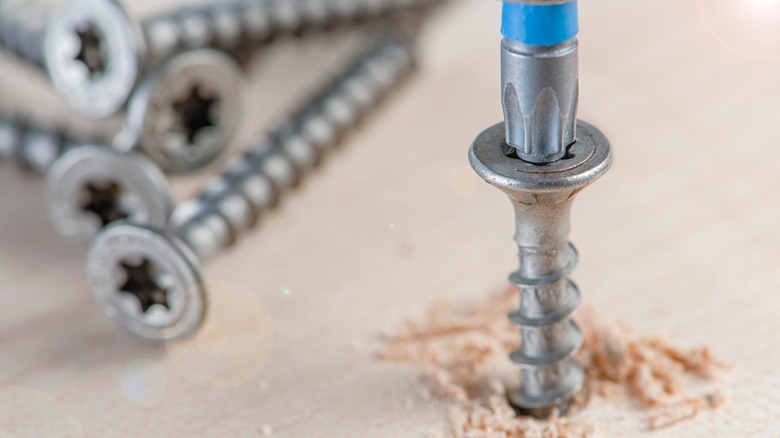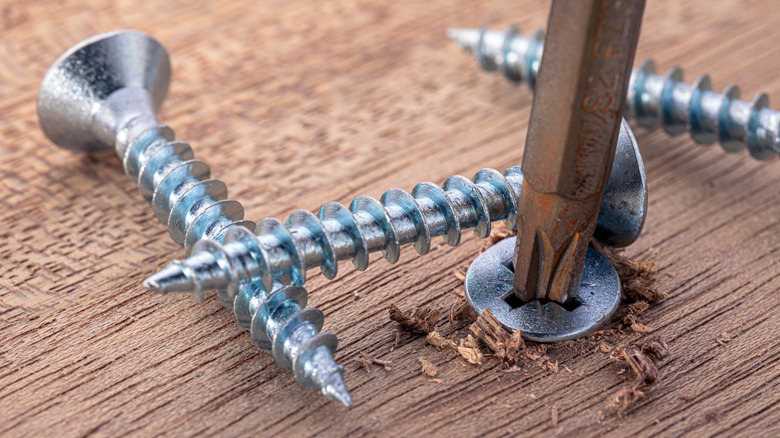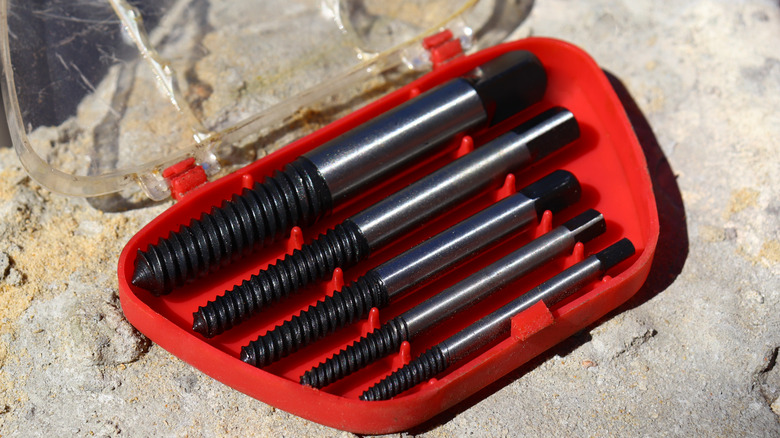How To Easily Remove A Broken Screw
Home DIY projects can be super fun and cost-effective, especially for those trying to add equity to their first home. With any new project, though, comes a series of unavoidable and unpredictable challenges. One of the difficulties that can easily stop a project mid-flow is a broken or stripped screw. Too much enthusiasm or little inexperience with a new drill can shave the top right off of a screw, making it seemingly impossible to extract. Sometimes screws will simply decompose or rust in the wall, rendering it immovable. Either way, stripping the head or breaking a screw is quite commonplace.
Fortunately, you can easily remove a broken screw with common household tools like a pair of pliers. A firm grip and counterclockwise twist should do the trick. If not, you my need to invest in a screw extractor to take out any stubborn hardware. No matter which method you choose, both are simple and effective when paired with a dash of patience.
Remove a broken screw with hand tools
Sometimes the head of a screw will sheer off completely. If some of the screw is still visible, grip it with a pair of pliers and turn counterclockwise to remove it. You may need to adjust the angle of the pliers depending on how far the screw is protruding from the hole. For screws that are only slightly sticking out, try a pair of needle nose pliers as the smaller surface area may allow for a better grip on the screw.
Another method that works well for broken screws, whether they are flush with the surface or not, requires a flathead screwdriver and a hammer. Make an indent in the center of the screw by gently tapping the hammer against the end of the flathead screwdriver into the surface of the screw. Once an indent is deep enough to provide resistance, rotate the screwdriver counterclockwise to release the screw. Repeat the step with the hammer if the screwdriver does not hold in the indentation.
If the head of the screw has been stripped, check your junk drawers for a wide rubber band or a roll of duct tape. Place the band or a strip of duct tape over the surface of the stripped screw and use a screwdriver to twist the band or tape into the stripped screw head. Turn counterclockwise and the traction from the band or tape should allow you to remove the screw.
Using a screw extractor
If all other methods have failed, then you will likely need a screw extractor kit and some thread cutting oil. A screw extractor works as an insert into a power drill and has two ends. One end is designed to drill a hole into the damaged screw and the other has reverse threading to twist the screw out. Screw extractor kits typically have several different bit sizes, so choose the bit that is most appropriate for the size of the broken screw.
Before you start, put a few drops of thread cutting oil on the screw to lubricate it and prevent overheating. Load your power drill with drill bit and put on protective eyewear as metal shrapnel will emerge. Drill a small hole into the screw approximately 1/16 to 1/8 inch deep. Flip the bit around to the extractor side and place it into the hole in the screw. Be sure the drill is set to reverse and gently drill out the screw. If the bit doesn't catch, try replacing the bit with the next size up or drilling a wider hole.


